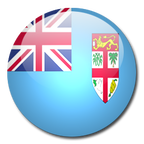International Headteacher
Menu
Full name: Republic of the Fiji Islands
Population: 854,100 (UN, 2010)
Capital: Suva
Area: 18,376 sq km (7,095 sq miles)
Major languages: English, Fijian, Hindi
Major religions: Christianity, Hinduism, Islam
Life expectancy: 67 years (men), 72 years (women) (UN)
Monetary unit: 1 Fijian dollar = 100 cents
Main exports: Sugar, clothing, gold, processed fish, timber
GNI per capita: US $3,580 (World Bank, 2010)
Internet domain: .fj
International dialling code: +679
Population: 854,100 (UN, 2010)
Capital: Suva
Area: 18,376 sq km (7,095 sq miles)
Major languages: English, Fijian, Hindi
Major religions: Christianity, Hinduism, Islam
Life expectancy: 67 years (men), 72 years (women) (UN)
Monetary unit: 1 Fijian dollar = 100 cents
Main exports: Sugar, clothing, gold, processed fish, timber
GNI per capita: US $3,580 (World Bank, 2010)
Internet domain: .fj
International dialling code: +679
|
The 800-plus volcanic and coral islands that make up the Pacific nation of Fiji enjoy a tropical climate and host a significant tourism industry.
However, since 1987 racial and political tensions have been a steady source of instability and international isolation. In 1987 a coup by indigenous Fijians overthrew the elected, Indian-dominated coalition. This triggered a series of adverse events, including the introduction - and subsequent withdrawal - of a constitution enshrining indigenous Fijian political supremacy. A further coup in 2000, led by businessman George Speight, saw the country's first ethnic Indian prime minister, his cabinet and several MPs held hostage for several weeks. These events caused great harm to the economy - the tourism industry in particular - and Fiji's international reputation. Rancour over the 2000 coup persisted, with bitter divisions over plans to grant an amnesty to those behind it. The continuing tensions generated by these disputes culminated in a bloodless military takeover in 2006 - Fiji's fourth coup in 20 years. In September 2009, Fiji was suspended from the Commonwealth over its lack of progress towards democracy. It was only the second full suspension in the organisation's history. Fiji's population, which resides mostly on the two main islands of Viti Levu and Vanua Levu, is divided between indigenous Fijians and Indo-Fijians, the descendents of indentured labourers brought from India. The two groups were of roughly equal numbers until the mid-2000s, by which time coups and agitation had prompted thousands of Indo-Fijians to flee. Indigenous Fijians now make up small overall majority. Mixing between the two groups is minimal, and informal segregation runs deep at almost every level of society. There are also very small non-Indo-Fijian, non-Fijian minority communities, such as Chinese and Rotumans. Although the former British colony relies heavily on the sugar and tourism industries for its foreign exchange, its economy is diverse. Gold, silver and limestone are mined, and there is a strong services sector and some light manufacturing. Nonetheless, Fiji has been hampered by persistent trade and budget deficits, making it one of the world's largest per capita recipients of aid. |
information provided by www.bbcnews.co.uk

